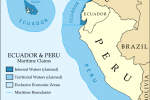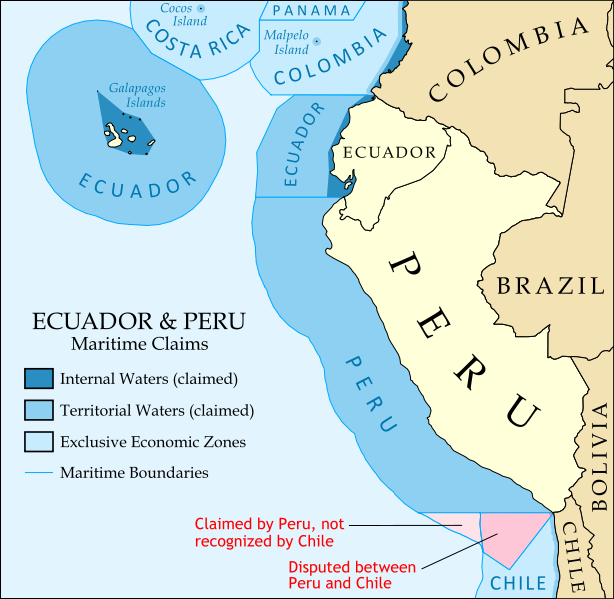 Chile and Peru defended their stances Tuesday, a day after the UN International Court of Justice began hearings over their longstanding maritime dispute in The Hague.
Chile and Peru defended their stances Tuesday, a day after the UN International Court of Justice began hearings over their longstanding maritime dispute in The Hague.
Chilean Foreign Minister Alfredo Moreno said none of the arguments presented by Peru could change the reality of the current situation, which gives Chile greater jurisdiction over the two neighbors’ Pacific coasts.
Moreno reiterated that “Chile’s position is founded on (…) the existence of a 1952 treaty, signed by both countries, complemented by a 1954 treaty and agreement,” adding there were also six decades of tradition and documents to back Chile’s claim.
Peru brought the dispute to the International Court in 2008 and opened its oral arguments Monday, saying the border only denoted fishing regions and that an official border needed to be established.
On Tuesday, Peru’s Foreign Ministry highlighted the arguments made by its lawyer to the UN Court, saying he showed how Chile intended to prove the existence of a maritime border “with pieces of different agreements that are not about border issues.”
The Peruvian lawyer said there were no documents or letters of negotiation establishing maritime boundaries, adding that all evidence submitted so far supported Peru’s claim that no maritime border agreement exists between the two neighbors.
The hearings will continue until December 14th, with a final and binding ruling not expected before mid-2013 at the earliest.
Both nations have thriving fishing industries, making access to the rich eastern Pacific a key economic factor.
 Escambray ENGLISH EDITION
Escambray ENGLISH EDITION





Escambray reserves the right to publish comments.